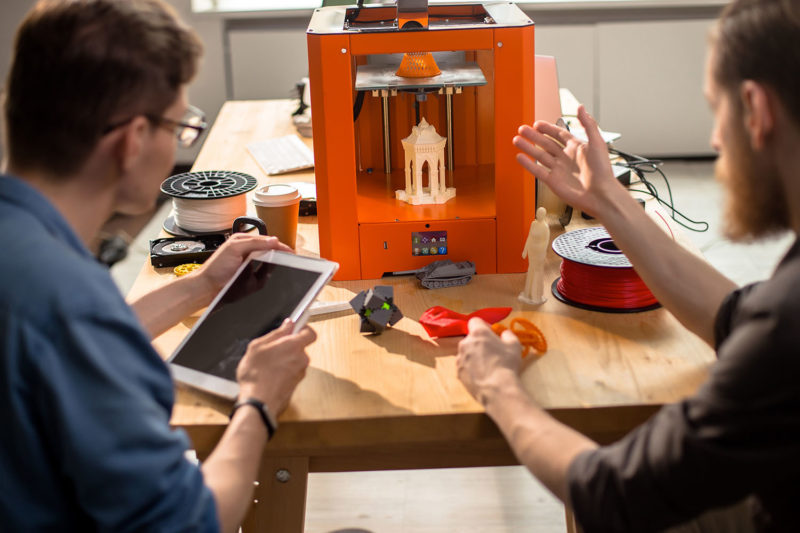

Does the social lift really work?
Do we live in a meritocracy, where effort is rewarded? Does the social lift really work? Numerous studies question whether people’s socio-economic success depends on their merits or whether it is predetermined by the privileges granted by their place of birth or social class.
The saying that the future is in our own hands, which we have heard so often from our elders, is in question. At least if we do not belong to a wealthy family. An Esade study shows that equality of opportunity in Spain is a fallacy: it is 24 times easier to end up in the top 1% of the population if you come from one of the families with the highest income than if you belong to one of those with the lowest.
The situation in Catalonia is much better than in Andalusia or the Canary Islands, as it offers the highest level of absolute and relative intergenerational mobility in the sample, with rates similar to Scandinavia. But, even so, the social lift is clearly out of kilter.
A contested model
After leaving behind feudal society, which was made up of rigid estates, bourgeois society, based on theoretical equality before the law, was supposed to allow people from the lower classes to progress socially if they worked hard enough. Traditionally, education was the main way for the lower and middle classes to move up the ladder. However, more and more experts point out that education no longer guarantees anything and that meritocracy does not exist.
The idea that effort takes precedence over privilege in our society is fundamental to legitimising Western liberal political and economic systems. To maintain the established social order, most individuals must believe they can get ahead if they try hard enough.
However, as Harvard Law Professor Michael Sandel warns, “the first problem with meritocracy is that opportunities are not really equal for everyone“. In fact, in the so-called Ivy League universities, which include eight of the most prestigious in the United States, there are more students who belong to the top 1% of the country’s wealthiest families than to the bottom 60%.
Daniel Sanabria Lucena, Professor of Psychology at the University of Granada, adds that in reality “the best predictor of academic performance and later professional success is not cognitive performance, it is the socio-cultural context, that your parents have money.
The adventure of entrepreneurship
The success stories of young entrepreneurs such as Steve Jobs, who founded Apple in his garage, have become popular. However, these are not representative cases, but highly unusual, stories that only happen to one person in a million. Moreover, in many of these cases, there are determinants of success that go beyond merit and personal effort.
Research has shown that the most common characteristic among entrepreneurs is access to capital, either through family or contacts that facilitate financial stability. Rather than a genetic inclination, it is often money and a safety net that enables entrepreneurs to take risks.
In fact, famous research by economists David Blanchflower and Andrew Oswald indicates that personality measurements and psychological test scores do little to predict who will run their own business. In reality, “it’s the start-up capital that matters,” they state emphatically in their study.
In this regard, the latest Global Entrepreneurship Monitor, which analyses entrepreneurship around the world, warns that businesses are often started with money from family, friends and colleagues. And it should be noted that many startup founders do not draw a salary for some time, something few people can afford.
The rich of yesterday and today
It seems that the wealth of family dynasties is perpetuated over time much longer than previously thought, as research by Italian economists Guglielmo Barone and Sauro Mocetti suggests. By testing intergenerational mobility and wealth distribution in Florence by comparing records from 1427 with those of 2011, they found that the wealthiest Florentine families still had the same surnames almost 600 years later. And other studies suggest that this is not a phenomenon unique to Tuscany.
Individual effort is no guarantee of success for young people today. A Spanish government report even acknowledges that “being born into a low-income family conditions educational and development opportunities much more than in other European countries”. Poverty is increasingly becoming a cage with no way out for a significant part of the population.
While qualifications and specialised training generally increase employability and average income, most analyses show that those sections of the population that are born into a social position tend to live and die in that position.
Indeed, young people have seen their present ignored and their future mortgaged. In recent years, when it comes to cutting large budget items, education has fared much worse than health and pensions. As a result, the main dynamo of the social lift is squeaking more than ever. And the amount of public debt they will have to pay off in the coming years has skyrocketed.
11Onze is the community fintech of Catalonia. Open an account by downloading the app El Canut for Android or iOS and join the revolution!
Leave a Reply
You must be logged in to post a comment.





👍
Gràcies, Manel!!!
Gràcies! Molt interessant el teu comentari Mercè!
Gràcies a tu, Joan!!!
A Catalunya l’ ascensor social va funcionar els anys 80 i 90. Hi va ajudar que el teixit econòmic es basa en gran part en autònoms, petites i mitjanes empreses i professionals qualificats. Només cal observar de quines famílies provenen molts metges, advocats, arquitectes, enginyers.
El campi qui pugui en que s’ha convertit l’ensenyament igualant a la baixa el nivell educatiu està molt ben calculat.
Moltes gràcies per la teva aportació i el teu comentari, Mercè!!!